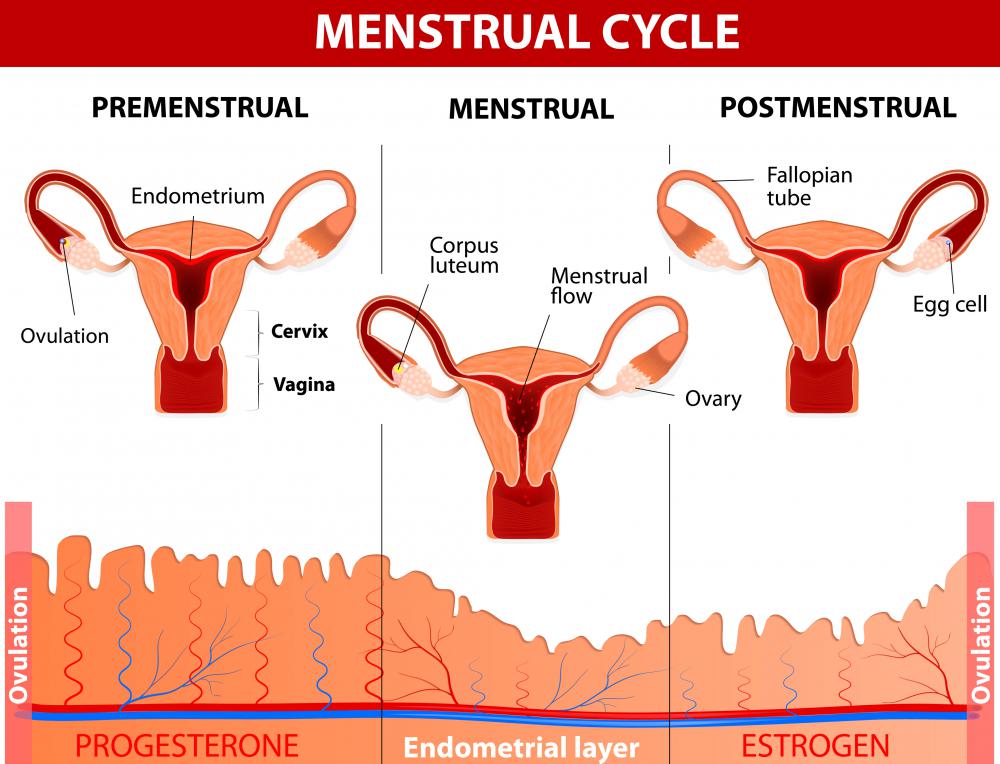At WiseGEEK, we're committed to delivering accurate, trustworthy information. Our expert-authored content is rigorously fact-checked and sourced from credible authorities. Discover how we uphold the highest standards in providing you with reliable knowledge.
What are Progesterone Suppositories?
Progesterone suppositories are a prescription medication used to supplement the female hormone progesterone. They are designed to be inserted into the vagina as a method of dispersing the medication. The suppositories are frequently prescribed for women who are undergoing infertility treatments, and they may also be prescribed to induce a menstrual period.
Progesterone is a hormone with various functions, including regulation of blood sugar levels and blood clotting. Progesterone also protects a developing embryo following conception. An increase in progesterone following ovulation promotes thickening of the uterine lining, which provides an optimal environment for a fertilized egg to implant. When levels of progesterone are low, the uterine lining may be thin, resulting in the inability to carry a pregnancy.

Some women who are trying to conceive take progesterone suppositories to build the uterine lining so that, if they conceive, the embryo has a better chance of implanting. Suppositories are often prescribed as part of infertility treatments if a woman’s normal progesterone levels are low. Following medication or a procedure to encourage conception, a woman may use a progesterone suppository for several days to promote implantation. Progesterone also supports the growing fetus, so taking the suppositories helps to maintain the pregnancy after implantation.

Progesterone supplements may also be prescribed for women who are undergoing menopause and those whose ovulation patterns are inconsistent. The medication may be ordered in addition to estrogen therapy as part of hormone replacement. Progesterone is particularly used for menopausal women who have not had a hysterectomy, because it offsets some of the effects of estrogen. Some women who have not entered menopause may have irregular menstrual periods or a lack of menses and may receive progesterone supplements to regulate menstrual activity.

Progesterone suppositories are ordered by a doctor and prescribed for use for a specific period of time. They are available through a pharmacy and are dispensed individually wrapped. Some suppositories have an applicator to use to assist with inserting the medication into the vagina. Suppositories may be ordered for use at certain times of day for an allotted number of days, and there may be vaginal discharge several hours after placement.
Progesterone suppositories may cause a few side effects related to the change in hormone levels. Some adverse effects include vaginal irritation, breast sensitivity, mood swings and vaginal discharge. Serious side effects, such as blood clots, are also possible when taking progesterone supplements. Discontinue use and call the doctor if significant side effects occur.
AS FEATURED ON:
AS FEATURED ON:













Discussion Comments
Progesterone suppositories side effects are about the same as other progesterone medications.
Some side effects include bloating, stomach pain, feeling sick to the stomach, breast tenderness, headaches, mood swings and a feeling of discomfort in the vagina.
More serious side effects include bleeding from the vagina, severe depression, swelling around the feet, yellow eyes and skin --- which indicates a problem with the liver.
Progesterone suppositories might also cause blood clots, and a heart attack, stroke, etc., Severe allergic reactions are also possible but not common.
Post your comments